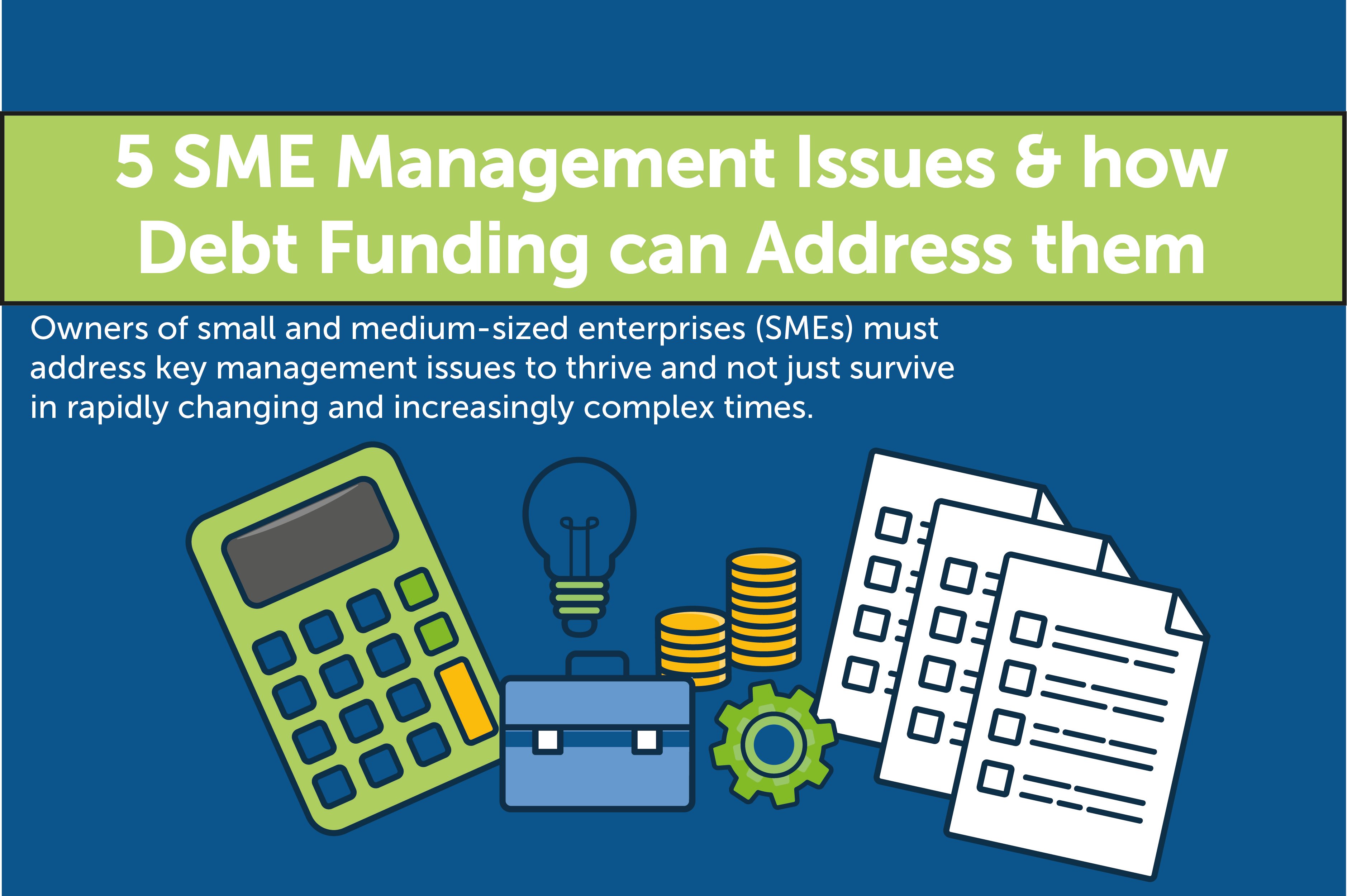While SME owners have specific skill sets, the breadth, depth and demands of the management issues they face shows the importance of appointing the right people with knowledge, experience and abilities relevant to their business - such as a finance director, chairperson, non-executive director(s), funding partners and possibly a wider advisory board.
Appointing this ‘team of all the talents’ provides invaluable support for the aspirational owner of an expanding SME, sharing the load of daily working life while allowing the owner to focus on their core skills to deliver rapid growth and fulfil their firm’s potential.
No single owner, managing director or chief executive - or any member of staff for that matter - can be expert in everything. Although always the case, it has never been more true than in these times of near constant flux and change.
Below we explore the five most pertinent management issues facing SME business leaders today, and what they need to consider when tackling them, including the applications of debt funding.
1. Attracting and retaining new customers
Recent research shows that almost 80 per cent of UK SMEs see attracting new customers while maintaining a five-star service to existing customers as their biggest challenge. One way to address this issue is for a business to have strong branding to generate wider recognition among target audiences, enhance the value of the business and secure new customers at a faster rate.
It’s no longer enough to rely on just having a website to ‘sell’ your brand and generate additional revenue, so to heighten awareness of your business and product(s) with a larger audience, owners need to undertake proactive measures including attending networking events in person and/or online, making phone calls to prospective customers and establishing a consistent and sustained presence on social media channels relevant to your brand and product(s).
Developing an end-to-end Marketing function that increases turnover and supports market and product development can require significant investment, which is where growth capital finance, such as debt funding, can act as a catalyst for addressing this critical management issue.
2. Recruiting, retaining and managing the workforce
Research has shown that up to half of employees will leave their role if they don’t feel valued.
As with any business of any size, SMEs can’t afford to make mistakes with their recruitment and retention of staff, particularly if they’re operating in sectors affected by staff shortages caused by the pandemic.
When opportunities to recruit arise, it's therefore essential to appoint the right people to the right roles and employ the right workplace culture, remuneration policy and promotion opportunities to create a motivated and happy workforce that delivers your product or service more effectively to your customer, thereby driving your revenue and profit.
For example, salary remains a key reason for staff feeling valued - as a business and its workforce grows, so should the salaries of its employees to reflect and reward their role in driving the success of the enterprise. While paying your staff more may create a short-term rise in costs, rewarding their efforts will make the business more money in the longer term.
To quote entrepreneur Richard Branson: “Train people well enough so they can leave, treat them well enough, so they don’t want to.”
3. Managing change positively
While implementing changes, any SME owner must ensure that their business remains stable to maintain and ideally expand market share.
Change can come in a wide range of forms - be it through a change of ownership such as a management buy-out (MBO)/management buy-in (MBI), becoming an Employee Ownership Trust (EOT), merging with or acquiring another business, so managing such change positively can have a beneficial effect on your market, customers, goodwill, production, delivery of your product or service and even workforce health.
Financing shareholder transactions via the right investment partner or lender can be instrumental in ensuring that these changes set off on the right track, with any founders or shareholders that are reducing their interest remaining on good terms with the business and its new management team. Structuring and transacting such change requires a high degree of expertise and sensitivity, and the flexibility of debt funding can allow investments to reflect these requirements. A recent example of this expertise is FDC's recent debt funding investment supporting the MBO / Acquisition of Aeroco Group.

FDC recently supported a multi-million pound MBO / Acquisition of Aeroco Group, led by the new management owners, with the original founder exiting the business.
4. Staying ahead of regulation and bureaucracy.
While important to all SME owners/managers, this is particularly relevant to exporters as Britain continues to adjust to a post-Brexit world and signs trade agreements with existing and new trading blocs worldwide such as Australia and India. In these circumstances, it might be advisable to add to your ‘team of all the talents’ by retaining a consultant rather than trying to understand the complexities yourself - and run the risk of being fined or worse for non-compliance.
5. Accessing finance
Although corporate lending is more accessible than in the past, small business owners still identify securing funding as among their major concerns, with many struggling to gain backing from traditional high street banks. So it’s good to know that a wide range of alternative sources of funding are now available for your business.
These alternative lenders - that don’t work to a ‘box-ticking’ mentality - can deliver flexible funding tailored to the needs of a business, from a short-term SME loan to credit or investment over the longer term.
The growth strategy of an SME - including any capital expenditure programme - can only be achieved with support from the right provider of funding, whether it be debt funding, equity or another form of financial support.
And because SME business funding and growth are inextricably linked, an expanding and proactive business needs to have a stable financial base from which to drive growth, innovation and transformation initiatives.
How the right finance partner can help
Putting in place this stable financial base by working with the right funding partner/provider allows SME owners to then address the other major management issues of attracting and retaining new customers, recruiting, retaining and managing their workforce, tackling bureaucracy and regulation and managing change effectively.
FDC has established a network of talented and trusted professionals including Finance Directors, Managing Directors, Non-Executives and sector specialists. When seeking an investment partner SMEs should look for these types of quality contacts, as it's an area where an SME lender can add real value when addressing management issues.
For further information about the comprehensive support Frontier Development Capital (FDC) can provide to you and your SME, download our SME Debt Funding Pack or discuss your funding requirements with an FDC Investment Director.



